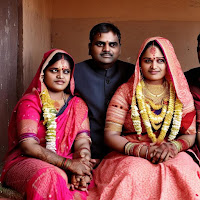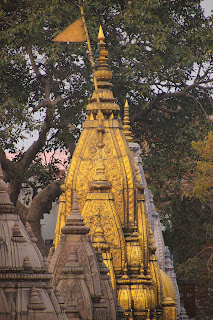Historical Origins and Cultural Importance:
Polygamy in India has a long history from prehistoric
times. Many societies used it and frequently served cultural, social, and
economic purposes. Understanding polygamy's significance and the circumstances
that contributed to its adoption requires a thorough understanding of the
rituals and traditions linked with it in various Indian areas and religious
traditions.
Religious Perspectives:
Religion dramatically impacts how people in India feel
about polygamy. While some religious texts and traditions discourage or
outright forbid polygamy, others accept or regulate it. We may learn more about
the many different perspectives on polygamy by examining the opinions of the
major faiths practiced in India, including Hinduism, Islam, and Sikhism.
Legal Framework and
Evolution:
India's polygamy laws have substantially changed.
Polygamy was historically acknowledged and controlled by personal laws in
various religious groupings. The legal environment surrounding polygamy has
changed due to judicial interventions and legal reforms that have tried to
address concerns about gender equality and individual rights over time.
Gender equality and
women's rights:
Many times, polygamy
prompts concerns about women's rights and gender equality. Critics claim that
it upholds patriarchal standards and can lead to women being exploited,
mistreated, and experiencing mental suffering. We may investigate the current
discussion around polygamy and its effect on gender dynamics in Indian culture
by looking at the viewpoints of feminist groups, women's rights advocates, and
legislative changes.
Socioeconomic
considerations:
Socioeconomic considerations may also impact the
acceptance and prevalence of polygamy in India. In polygamous marriages,
monetary factors, social standing, and cultural expectations frequently come
into play. We can learn more about the patterns and reasons of polygamy by
looking at how it relates to socioeconomic issues.
India's Modern Polygamy:
Polygamy has declined in
popularity in modern India, primarily due to changing societal values and legal
constraints. The perspectives on marriage and family dynamics have changed due
to increased education, urbanization, and economic independence. However,
polygamy is still practiced in some parts of society, which continues to spark
discussions about people's rights, the preservation of culture, and societal
change.
Impact on Family
Structures and Children:
The effects of polygamy
on families and children cannot be disregarded. Children who grow up in
polygamous families may experience significant changes in their relationships,
identity development, and upbringing. Understanding the subtleties and
difficulties faced by polygamous households requires examining their
psychological and sociological aspects.
Polygamy and Personal
Choice: While there are issues with gender equality and
individual rights regarding polygamy, some people contend that consenting
adults should be allowed to make their own marriage decisions. Examining
defenses of freedom of choice and autonomy in the context of polygamy offers a
fair analysis of the issue.
Polygamy: Global
Perspectives
Beyond the boundaries of
India, polygamy is practiced and accepted in many forms on a global scale. We
may gain a deeper understanding of polygamy as a complex social phenomenon by
investigating international perspectives, including historical settings, legal
systems, and cultural norms.
With its complex
historical, cultural, and legal facets, polygamy in India continues to spark
discussion and thought. Despite declining popularity due to cultural and legal
changes, polygamy still exists in certain groups. Understanding the subtleties
and intricacies of polygamy enables thoughtful debates on gender equality,
individual liberties, and cultural diversity. It is vital to balance maintaining
cultural heritage and advancing equality and justice values as India navigates
the challenges of modernity.
---END---










0 Comments